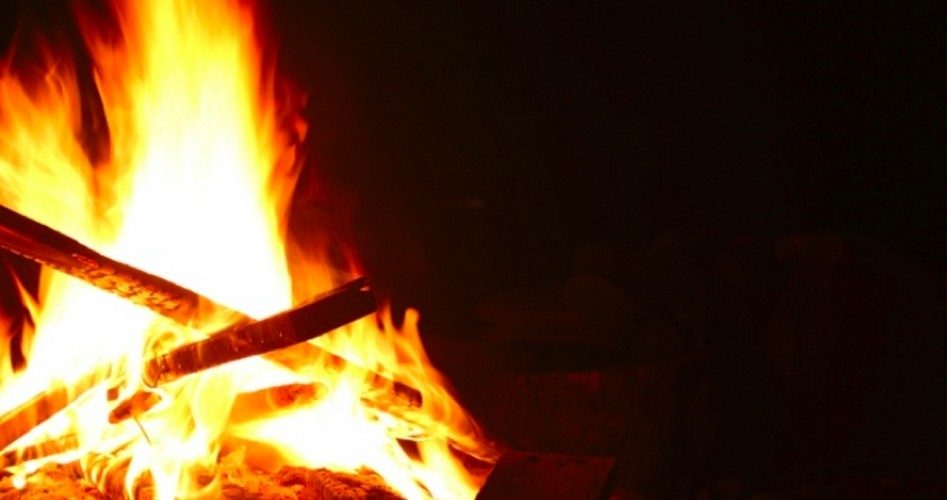
“I have but one lamp by which my feet are guided; and that is the lamp of experience. I know of no way of judging of the future but by the past.” — Patrick Henry
On November 9, 1780, the British planned to carry out a pre-dawn surprise attack on the patriot militia encamped near Fishdam Ford, near present-day Carlisle, South Carolina. The raid was to be part of the wider British “southern strategy” to isolate the South from the rest of America and win the war piece by piece.
A brief outline of the engagement is provided by history.com:
On this day in 1780, British Major James Wemyss, commanding a force of 140 horsemen, attempts to surprise 300 South Carolina militiamen under General Thomas Sumter at Fishdam Ford, South Carolina. Instead of capturing Sumter as planned, Wemyss, “the second most hated man in the British army,” was wounded in the arm and knee, and captured by Sumter.
Sumter and Wemyss were key players in the brother-fighting-brother regional conflict that engulfed the Santee River Valley of South Carolina. The two were set on a course of combat in the months prior to Fishdam Ford.
While Weymess was chasing Carolinian patriots through the backcountry, another British commander, Lieutenant Colonel Banastre Tarleton, was sent by Lord Cornwallis to seek and destroy Francis Marion, the notorious “Swamp Fox” who was wreaking havoc on loyalists in the northeastern part of South Carolina.
South Carolinian patriots came to despise Tarleton for his ruthless campaigns that wantonly laid waste to life and property throughout the area. Even Sumter’s own plantation was razed in one of Tarleton’s assaults.
As a response, an enraged Sumter assembled a volunteer patriot militia (who subsequently nicknamed him the “Gamecock” for his tenacity) and set about administering to Tarleton a little of his own maniacal, merciless medicine.
Although Weymess didn’t share Tarleton’s blue blood, he did share his capacity for killing patriots and burning down their homes and farms. What he wasn’t able to do, however, was carry out the clandestine attack on Sumter and his men that night in November over 230 years ago.
The battle, what there was of it, when down this way: First, in light of reliable and very specific intelligence provided to him by loyalist spies, Weymess decided to accelerate the plan a bit and surprise Sumter and his soldiers before the sun came up.
Sumter had some intelligence of his own, however, and the preparations he put in place in anticipation of the raid are a lesson for us all in the 21st century, facing off against the forces of a modern empire whose commanders consider themselves aristocrats and believe they have a foolproof plan to surprise us with new laws that leave us slaves to an all-powerful state.
Knowing that the surprise attack was a favorite gambit of the British army, before the end of the day prior to Weymess’s attack, Sumter ordered his men to sleep on their weapons, keep the campfires burning, and he reminded them of specific defensive postures they had prepared in case of such a surprise.
With Weymess at the head of his troops, the British approached and attacked the guards set by Sumter to watch for any enemy approach. During this opening skirmish, Weymess was shot twice and fell. The British dragoons carried on, though, heading right into the middle of the patriot militia camp. Once within that perimeter, the fires that Sumter ordered to remain lit illuminated the king’s soldiers and the patriots picked them off with ease.
Many of the advance British company were killed or wounded and they retreated. As they did, the British infantry flooded into the camp where they also met with a wall of gunfire, this time coming from the forest surrounding the camp.
At this point, the British were reduced to running at the patriot line with bayonets, but in this they were also thwarted, as Sumter’s men had constructed a fence that could not be seen in the pre-dawn darkness. After about half an hour of this, the British abandoned the battle, leaving Weymess lying nearly lifeless on the field.
Where Weymess failed, Tarleton succeeded, severely wounding Sumter in a battle less than two weeks after the Fishdam Ford debacle. Sumter’s injuries were so bad that the Gamecock was forced to relinquish his command of the very militia he called into being.
After Sumter’s decline, Marion took command of the Carolinian patriot forces, and masterminded the plan that drove the British out of the Carolinas and north into Virginia, where they would eventually meet their ultimate defeat at the battle of Yorktown.
Just like our ancestors were in 1780, American lovers of liberty are under attack today by the various regiments of a standing army supplied and supported by money unconstitutionally obtained through oppressive taxation.
Like the loyalists of the revolutionary period, many of our fellow citizens are convinced that the usurpers are in the right and that patriots committed to destroying the despotism are misguided at best and domestic terrorists at worst.
Using the wisdom of General Thomas Sumter as a guide, we can prepare for the secret raids on our liberties by “sleeping on our weapons,” as it were. We must defend the God-given right to keep and bear arms and appreciate it for what it is: the last, best defense against powerful potentates and the armies they command.
In addition to firearms of the traditional sort, the Constitution is another weapon in the patriot army. Metaphorically, we can sleep with the Constitution not only by committing its text to memory, but by coming to comprehend the timeless principles of self-government that are there in every drop of ink on that priceless parchment.
Finally, we must keep the fires of freedom burning so that enemies of liberty and limited government may be readily identified. These fires are fueled by faith and unwavering adherence to the tenets of morality, without which a people can never be free.
To stoke these fires, we must inculcate the rising generation of Americans with a respect for republican virtue and an animating disdain for any attempt from any quarter to infringe even slightly on any of the rights bequeathed to us by Providence and protected by our patriot forefathers.
Joe A. Wolverton, II, J.D. is a correspondent for The New American. Follow him on Twitter @TNAJoeWolverton.



